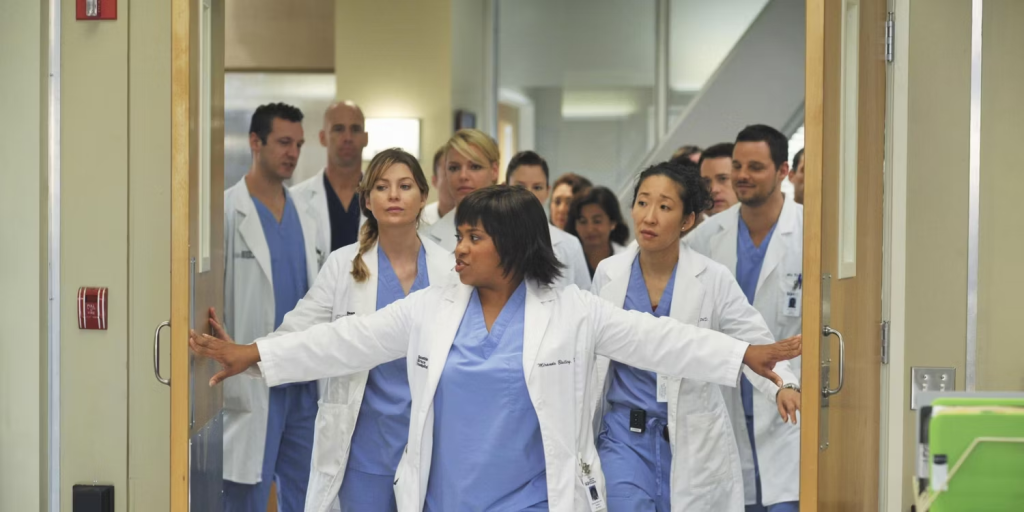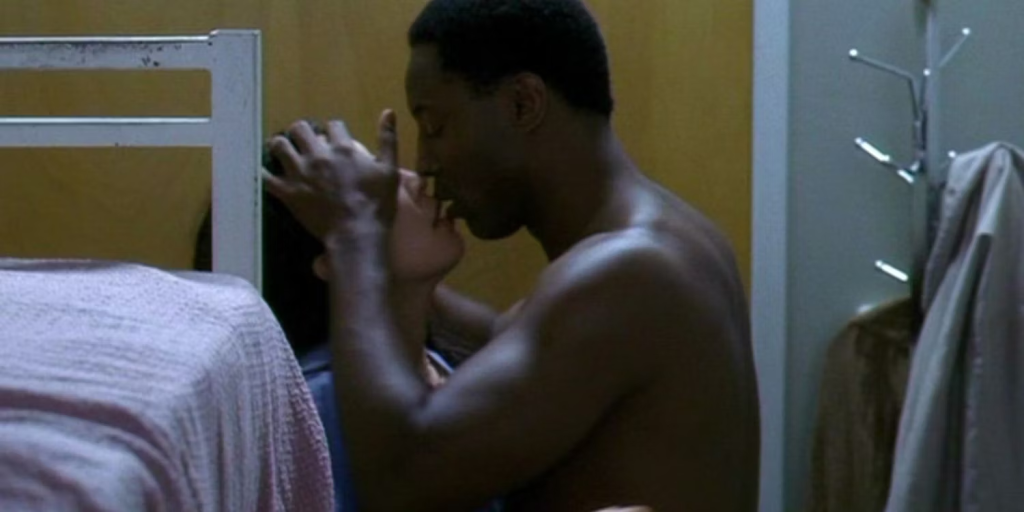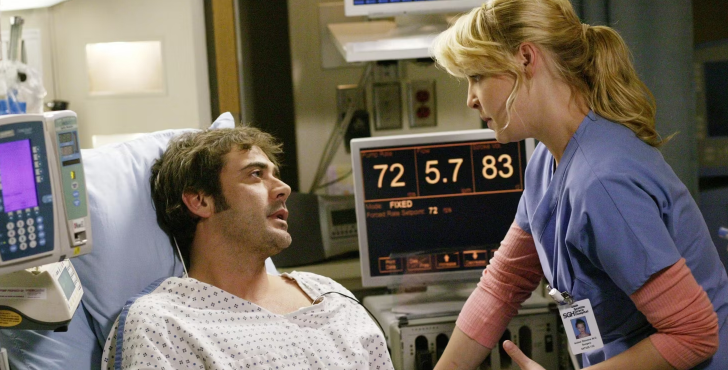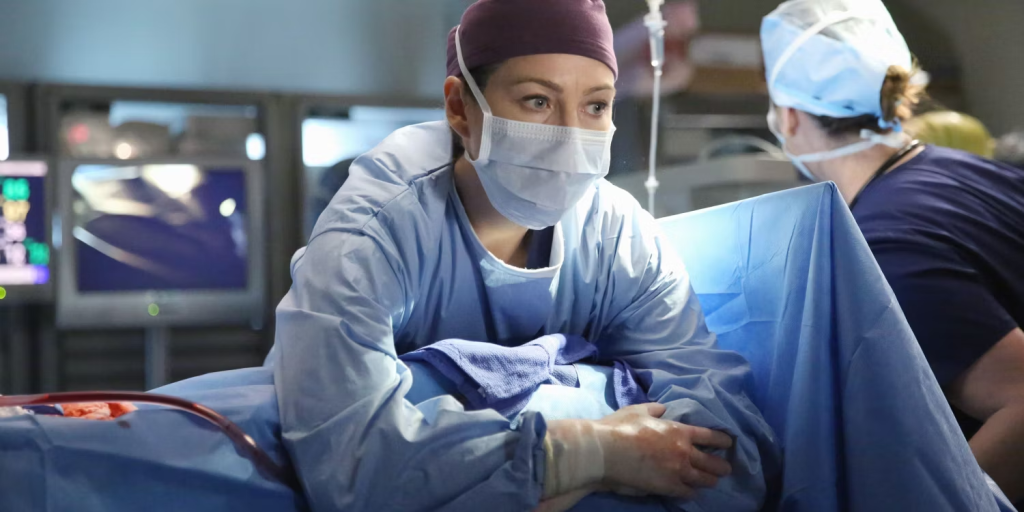10 Questionable Workplace Choices In Grey’s Anatomy
Grey’s Anatomy definitely delivers the drama, but that often comes at the cost of maintaining the authenticity of a real-world hospital.
Over the course of 19 seasons, it’s easy to think that Grey’s Anatomy may have done it all as far as medical dramas go. As the longest-running show of its kind in TV history, the series has covered everything from bizarre medical cases to both metaphorical and literal workplace explosions. Throughout its run, however, fans have also pointed out that the show has suffered from some story arc disappointments and obvious plot holes.
Aside from these, some have also questioned several working practices shown at Grey Sloan Memorial Hospital. Here are some that have raised eyebrows the most.
Residents Working Extremely Long Hours

The show’s pilot episode is considered one of the best in television to this day. It introduces everyone to Meredith Grey (Ellen Pompeo) and her fellow interns as they struggle to keep up with doctors and patients during their first day at Seattle Grace. In the episode, they go through a grueling first shift, working longer hours than the more senior doctors. In reality, though, hospitals are not allowed to extend doctors’ work hours beyond a given period of time. Specifically, the Libby Zion Law states that they should only work up to 80 hours per week.
The On-Call Room Becoming A Make-Out Room

In hospitals, the on-call room provides temporary accommodations to a doctor who needs to stay in the hospital longer due to an ongoing medical case. A typical on-call room features a bed, and, in some cases, it may also have a desk and even an entire suite bathroom. That said, hospitals typically don’t expect anything unprofessional to occur in these rooms, and doctors don’t readily associate these rooms with hot and steamy sex. Granted, it may happen from to time, but, on Grey’s Anatomy, they make it seem like it’s a normal practice.
Doctors Spending Way Too Much Time With Patients

It is understood that doctors have a duty to care for a patient. After all, their job is to figure out the patient’s condition and provide a course of treatment as needed. That said, doctors typically don’t spend more time with patients than they need to.
In fact, it’s the nurses who tend to spend more time with them. As former CNN medical correspondent Andrew Holtz has told Monster, “an awful lot of what you see on the show is what nurses do in terms of patient care.”
Interns Having An Intimate Relationship With A Superior

Understandably, the show needs to delve into the doctors’ personal lives to stay interesting. That said, Grey Sloan Memorial seems to be the one hospital where doctors tend to hook up with each other, even if one is an intern while the other has a more senior role.
This was exactly what happened with Meredith and Derek (Patrick Dempsey). Granted, neither of them knew that they were doctors when they hooked up. Nonetheless, some found it questionable that the two kept seeing each other, as other hospitals would have objected to their relationship.
Doctors Using Defibrillators Incorrectly

Admittedly, scenes of patients in critical states are often compelling, and, in Grey’s Anatom, situations inolving patients in critical conditions occur all the time. When this happens, a defibrillator finds its way to the scene more often than not as the doctors attempt to bring the patient back. However, that’s not how it’s done in real-life hospitals.
“When a heart ceases contracting, a massive shock of electricity is going to do nothing for it,” the National CPR Association explained. “The correct treatment would be to administer CPR and epinephrine.” In other words, Grey Sloan has been doing it wrong this whole time.
Doctors Performing Intubation Without Tape

Doctors would typically opt to intubate a patient if they are clearly incapable of breathing on their own. On Grey’s Anatomy, fans may have seen their favorite doctors intubate patients several times over the years, and, while it may look like they are doing it properly, actual doctors have noted that Grey Sloan’s guidelines in performing intubation are seriously in need of a review, as they doesn’t seem to specify the use of tape. In an interview with The Do, Amanda Kirzner explained that “in real life, we always use tape because the tube an easily slip from its correct position.”
Interns Able To Bypass A Senior Resident, Speaking Directly With An Attending

When Meredith started out in the hospital, she and her fellow interns directly reported to Miranda Bailey (Chandra Wilson), their resident. In a typical hospital, interns report to a resident and residents report to an attending.
However, Grey Sloan seems to enjoy blurring the line between doctor hierarchy levels. For some reason, interns could readily ask an attending to be assigned to a patient’s case without asking permission from a resident first. In a real-life hospital, this system would cause chaos, as the resident would not know which intern is still available to attend to a patient.
Doctors Always Insisting On Surgery

Granted, there are a lot of medical cases that tend to be treated surgically. But, at Grey Sloan Memorial, that seems to be the case most of the time. This is especially the case with patients that are brought to the hospital’s emergency room.
In fact, a study conducted by St. Joseph’s Hospital and Medical Center reviewed 29 Grey’s Anatomy episodes found that 71 percent of the show’s ER patients were rushed to the OR. In contrast, only around 25 percent of ER patients are rushed to surgery in real life.
First-Year Residents Spending A Great Deal Of Time In The OR

Grey Sloan Memorial is perhaps the only hospital that readily allows its first-year residents to participate in OR procedures very early on in their careers. In fact, fans of the show saw Meredith and her fellow interns join attending doctors in the OR on more than one occasion throughout the show’s first season.
In real-life hospitals, however, first-year residents are hardly supposed to get any OR time. It didn’t even matter if the intern and the attending had a relationship, such as Meredith and Derek or Cristina (Sandra Oh) and Burke (Isaiah Washington).
More Frequent Reliance On Experimental Treatment Than Usual

Typically, hospitals don’t like to propose experimental treatments for patients, as, most of the time, they are more dangerous than helpful. Hence, they could pose an unnecessary risk for the patient. Even worse, there is never any guarantee that it would work and that the patient would recover.
That said, Grey Sloan seems to be in the habit of going the experimental route when it comes to treating their patients. Even more troublesome, the process to acquire permission to start this course of treatment seems to be too accessible, even lax.
